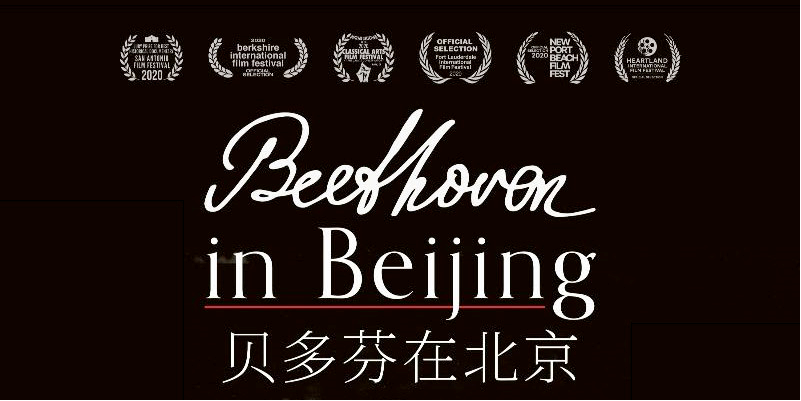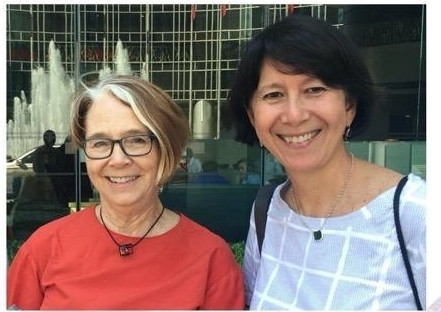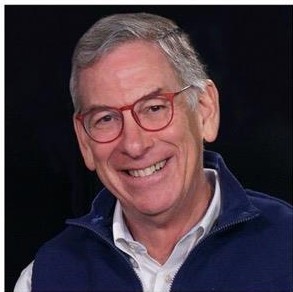
UCI Lunar New Year 2023
Screening | Beethoven in Beijing
Tuesday, January 17, 2023 | 1pm
Presented by the UCI Long U.S. - China Institute
![]()
Forgotten history. Thrilling music. Tense diplomacy and heart-warming friendships. Mao, Nixon, Ormandy Beijing, Philadelphia, Hollywood. Few stories combine the rarefied worlds of international relations and virtuosic artistry. But the surprising tale of an iconic American orchestra and a reawakened world power presents a compelling, up-close look at how music can change hearts and minds-and history.
Beethoven in Beijing brings all of this together in a fascinating documentary of inherent drama and emotion, backed by a soundtrack of the world's greatest music. When Richard Nixon asked for the Philadelphia Orchestra's help in rekindling diplomatic relations with the People's Republic of China, he could not have known how this bit of cultural diplomacy would change the world of classical music over the next half-century.
That 1973 visit is retold here by surviving musicians and diplomats, both American and Chinese, with rediscovered footage of the trip, an Oval Off ice audio tape and Chinese newsreels of the chaotic years of the Cultural Revolution, when western music was banned, instruments destroyed and musicians silenced. But the archival material is merely a prelude to a vivid depiction of the decades-long renaissance of classical music in China.
Intriguing personalities propel the story. Celebrated composer Tan Dun first heard the orchestra over a loudspeaker in a rice paddy, sparking a passion that would carry him to an Academy Award decades later. Renowned pianist Lang Lang, who as a prodigy heard the visiting Philadelphians in Beijing in 1993, recalls the thrill of returning to his homeland to perform with the orchestra in 2001. And we see how the charismatic conductor Yannick Nezet-Seguin preserves and advances the legacy set by Maestro Eugene Ormandy back in the 1970s.
Now China produces hundreds of thousands of classical musicians and erects new concert halls, while American orchestras look East for new audiences, revenue, and musicians. And history's greatest music provides the soundtrack, including a rousing performance Beethoven's Ninth Symphony with a Chinese chorus at the finale.
For more information, see BeethoveninBeijing.com

This film-this story-has tempted me for a long time.
Part of it was personal: A Chinese cousin's promising career as a concert pianist was derailed by the Cultural Revolution, when pianos were smashed and only revolutionary music was allowed.
And part of it was professional: I lived and worked in China in the late '90s, reporting for The Philadelphia Inquirer. In 2008, I went back to cover a concert marking the 35th anniversary of the Philadelphia Orchestra's first trip to China.
Before the concert, I mingled with Chinese people in the audience. I was struck by how many recalled in detail that 1973 tour and expressed genuine fondness for the Orchestra - not orchestral music, this Orchestra. I'd had no idea there was this level of affection.
Back home, I found newspaper clips about the 1973 tour and pored through the archival papers of Conductor Eugene Ormandy. I started interviewing musicians who had been on the trip. I became convinced that this was a story that more people should know-and would enjoy.
This is my first turnat directing. I've partnered with filmmaker Sharon Mullally, whose work has appeared in more than 20 feature-length documentaries. We tell a big story. We use 1973 as a starting point, but our narrative takes viewers into the present and spotlights not only the extraordinary change in China's classical music scene, but also the impact China is having on American orchestras.
We let the people who lived the experience tell the story, like composer Tan Dun, who as a teenager heard snippets of the Orchestra's concert over a loudspeaker at his commune and was "seduced" by this strange music. Forty years later, the Orchestra performed the Oscar winning composer's masterpiece, Nu Shu, in his hometown in Hunan province.
We have mined some archival gems, but our story is happening right now, and our unprecedented access to the Philadelphia Orchestra yielded intimate backstage footage. Viewers see the toils of a touring orchestra, and witness the creative process in action,as when conductor Yannick Nezet-Seguin goes over rehearsal notes with pianist Lang Lang.
In the end, we hope to challenge viewers, weary of the saber-rattling of trade wars, to view the relationship between China and the United States through the lens of culture.
Jennifer Lin
Co-director & writer

Why this film? And why now? You won't find those answers in the headlines. The news tends to distract us from a fascinating story that is unfolding as we speak.
The public vaguely assumes that classical music is in decline.
But this depends on where you look. It's more accurate to say that this 400-year-old art form has been disrupted-upended by globalism and technology, and is emerging newly transformed.
So ignore the naysayers and watch Beethoven in Beijing. Here you will see how and where orchestral music is flourishing, and learn the remarkable story behind this resurgence. The film reveals a dynamic confluence of history, geopolitics, commerce and art.
China, an economic and military power, also knows the value of soft power-the use of culture in exerting influence. So did President Richard Nixon in 1973, when he sent the Philadelphia Orchestra to a sealed-off and artistically repressed China as cultural diplomats.
And that is our story-how this artistic reawakening in China, where music education is now a priority and concert halls are filled with young families, is energizing the world of music.
China's cultural aspirations are evident everywhere and the influence of Chinese musicians and composers is felt worldwide. In contrast, support for the arts and music in U.S. schools has been sagging at the altar of test scores. There is much to be learned.
Beethoven in Beijing tells this story partly through the lives of Chinese superstars like pianist Lang Lang and Oscar-winning composer Tan Dun, as well as newcomers like composer Peng-Peng Gong, who observes: "This music doesn't belong to Austria, or Germany or Russia. It belongs to the world."
Throughout Beethoven in Beijing are reminders of the deep bonds between the Philadelphia musicians and their Chinese counterparts -including a wonderful reunion where elderly Chinese musicians recall with fondness how their lives were touched by that1973 visit.
Beethoven fever in China and around the globe is spiking this year, the 250th anniversary of the great composer's birth. The Philadelphia Orchestra, revived from bankruptcy, is reaching back to its past in China to help shape its future. Its continued touring of China provides both revenue and a reminder of music's universal appeal-how that emotional response fosters a shared sense of humanity.
Despite what the headlines say.
Sam Katz, Producer
JENNIFER LIN I CO-DIRECTOR, PRODUCER and WRITER, lived and worked in China for four years as Asia correspondent for The Philadelphia Inquirer. She launched Beethoven in Beijing in 2015 after 31 years at the newspaper. For the film, Lin took four reporting trips to China. An award-winning reporter, Lin is author of two books, including a family memoir, Shanghai Faithful.· Betrayal & Forgiveness in a Chinese Christian Family (Rowman & Littlefield, 2016).
SHARON MULLALLY I CO-DIRECTOR, is an Emmy Award-winning filmmaker whose work has appeared on national public television. She began her career in television in Philadelphia and Baltimore before shifting to independent film work. In 2015, Mullally directed three films for History Making Productions on Pope Francis's historic 2015 visit to Philadelphia, including one that received the Gabriel Award, presented by the Catholic Academy of Communication Professionals
SAM KATZ I PRODUCER and EXECUTIVE PRODUCER, has led a variety of civic and non-profit organizations in Philadelphia and beyond. In 2008, he founded History Making Productions (HMP), which has dramatized more than three centuries of Philadelphia history in the epic series Philadelphia: The Great Experiment, which aired on the local ABC affiliate and won 10 mid-Atlantic Emmy awards. Katz was producer on the feature-length Sisters in Freedom,·Urban Trinity: The Story of Catholic Philadelphia; and Before Hollywood Philadelphia and the Birth of the Movies.
RACHEL SOPHIA STEWART I EDITOR, joined the HMP team in 2012. Her intuitive approach to pacing and storytelling has been recognized with five Mid-Atlantic Emmy Awards. She edited Philadelphia: The Great Experiment Octavius V Catto: A Legacy for the 21st Century, and Sisters in Freedom. Stewart served as visual effects editor on HMP's Before Hollywood, which premiered at the 2017 Philadelphia Film Festival.
PAUL VAN HAUTE I DIRECTOR of PHOTOGRAPHY, has been a cinematographer for 30 years, working for the past six with History Making Productions. Van Haute's cinematic flair has been recognized with six Mid-Atlantic Emmy Awards for HMP's Philadelphia: The Great Experiment and Before Hollywood Philadelphia and the Birth of the Movies.
JIN DONG CAI I PRODUCER and SCRIPT CONSULTANT, is the inaugural director of the U.S.-China Music Institute at the Bard College Conservatory of Music. A conductor, Cai co-wrote with his wife, Sheila Melvin, Rhapsody in Red· How Western Classical Music Became Chinese (Algora, 2004), and Beethoven in China, How the Great Composer Became an Icon in the People's Republic (Penguin Books, 2015).
JON KOHL I ARCHIVAL PRODUCER, shapes the visual language of our documentaries through archival footage and photographs. Kohl produced, directed,and edited the HMP documentary Cecil's People, which won 3 Mid-Atlantic Emmys for Best Cultural Program in 2015 and 2016. He formerly worked at Temple University's Samuel L. Paley Library.
Finalist 2020
Library of Congress Lavine/Ken Burns Prize for Film
San Antonio Film Festival 2020
Best Historical Documentary
Honorable Mention/Best Local Feature
Philadelphia Film Festival 2020
Guangzhou International Film Festival 2018
Second Place Pitch Competition